Blog
Volume Levels for Worship

Everyone has an opinion about how loud worship should be at church.
Who’s right? How do you know what the best level is for your church?
The answer depends on several key variables. In this post we’ll address Safety, Music Styles, Acoustics, Volume Targets, and Mixing Techniques. Each of these things will have an impact on your worship volume.
Before sound techs and pastors can arrive at a solution for the worship volume level at church, it is important to cover some basic insights for acceptable and unacceptable volume ranges.
Volume Levels and Hearing
We measure volume in decibels, A-weighted (dBA). Zero dBA is, in theory, the lowest level of sound a human can hear. 140 dBA is an extreme level that results in pain. The average conver...
Church Sound on a Budget
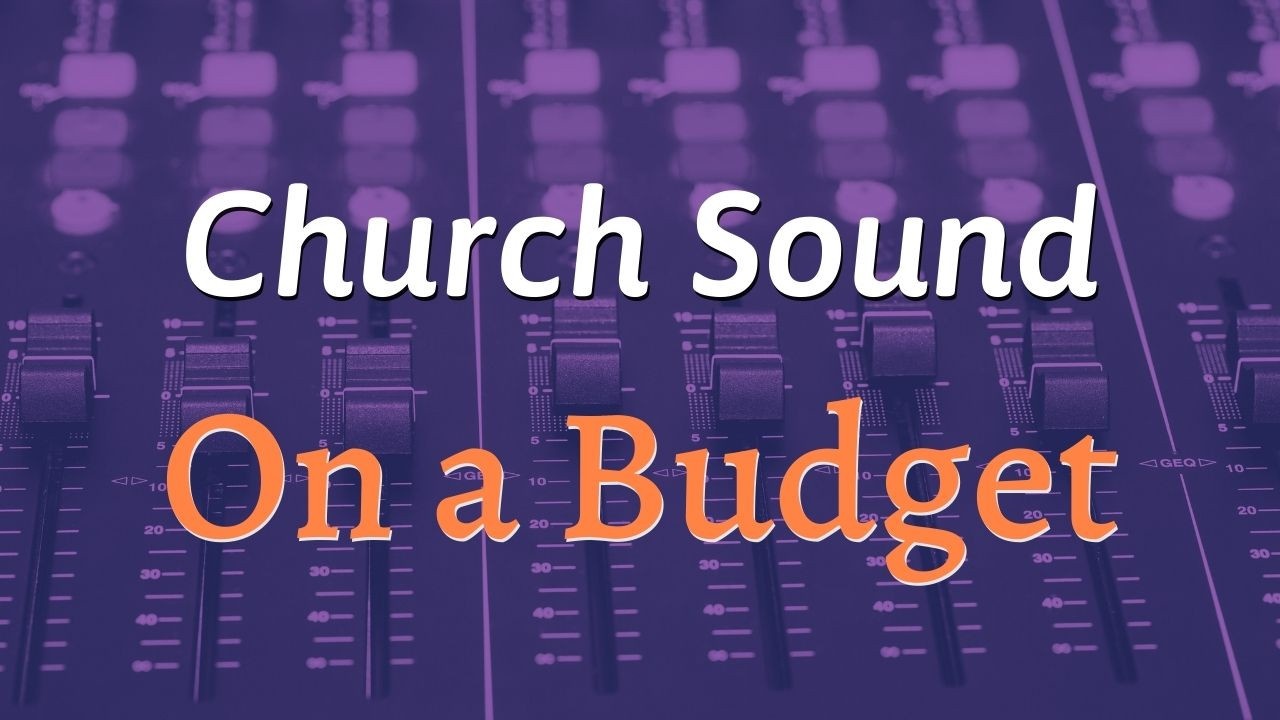
Believe it or not, it is possible to get great sound at church on a modest budget. But the key to getting the best deal on church sound equipment is not just about the price you pay, it’s about the quality you get in return.
Having great sound at your church doesn’t have to be a luxury reserved for large building budgets and a tech department with deep pockets. Even if your church has an older sound system, there are some budget-friendly ways you can enhance the quality of your sound.
In this post you’ll discover some important things that will help improve your church sound on a budget.
It all starts with the input source.
You can’t reproduce good quality audio if you aren’t capturing it well in the first place. Using the right mic in ...
2 Awesome Tips for Simple Church Sound

Church sound can feel pretty complicated and overwhelming at times. There is so much to keep track of, especially for a beginner.
And when you add mixing effects (like EQ and reverb), live streaming, and finding help on the tech team, it can seem like an impossible job to get perfect.
I know what that feels like. It’s exciting to serve and “make things work” every week. But it’s also challenging to get it right all the time.
My biggest problem used to be figuring out how to control feedback. Then it was learning to EQ and training my ear. And finally it was the dreaded team building and management. Ahhhhh!
If you’ve served on the tech team for any length of time, I’m sure you can relate to one or more of those feelings – and probably a ...
How to Mix with EQ, Panning and Reverb

Mixing live sound can seem like it’s all about volume control, but it’s more involved than simply raising or lowering the faders of various audio sources.
You’ll want to use a few simple tools to help create a mix that has depth, texture, clarity, and focus.
Fortunately most consoles have these simple tools built in (yes, even analog consoles).
EQ – the most powerful mixing tool
EQ can do more for your sound than just about any other gadget in your audio toolbox.
Use EQ to clean up your mix, separate instruments that may be competing with each other, and shape the overall tone of your soundscape.
Use high pass (also called low cut) filters to reduce low frequency rumble in channels that don’t need the low end, like vocals.
Dial in th...
The Beginner's Guide To Gain Structure
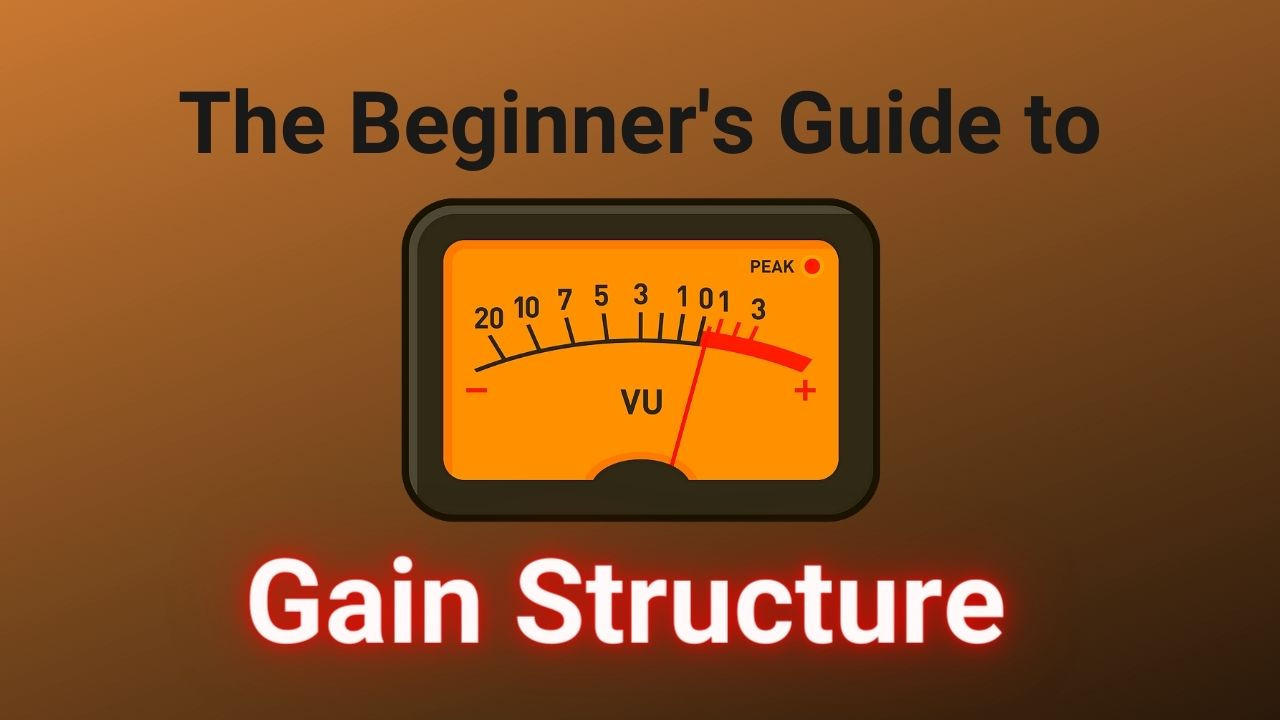
Note: this post is contributed by professional sound engineer Terry Bledsoe, author of The Beginner's Guide To Live Sound Mixing: Or How Not To Get Fired On Your First Gig
Okay, I know you want to get going and playing with some gear, but let’s get a few basics out of the way. First of all, this is a simple sound wave:

Hertz measures the number of these that happen in one second. The number of Hertz that happen is the Frequency. The more the Hertz, the shorter the waves and are higher pitched frequencies, the lower the number are the low frequencies, that require more power to produce.

The amplitude is how strong the signal is. This is measured in decibels or dB. Too much amplitude and we have distortion, too little and we get noise...
Mixing Consoles for Small & Medium Churches
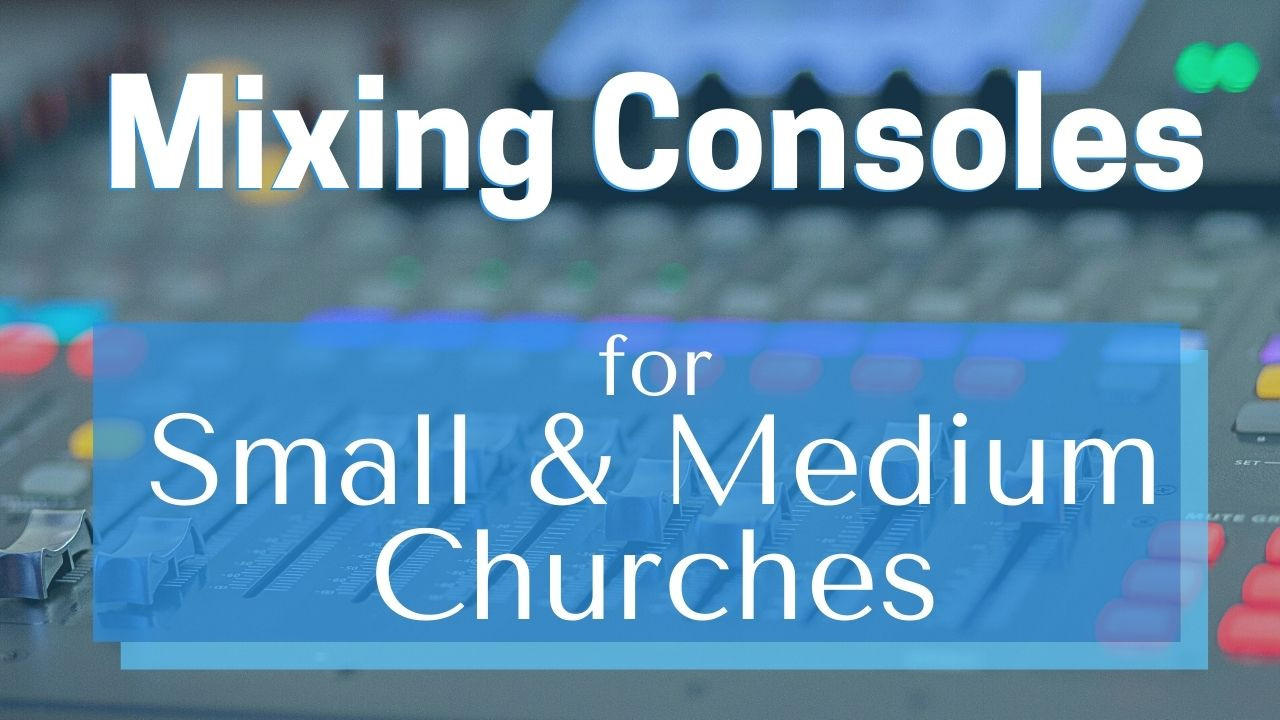
If there’s one technology component that your church needs to take its time and focus to decide on, it is the question of what audio mixing console should be used.
This decision can make the difference between ok sound and great sound, and it will definitely make a difference in the confidence (and even the size) of your sound team.
The main sound system controller at your church goes by many names: soundboard, audio desk, mixing console, mixer, etc. They all refer to the same thing.
Selecting the right soundboard for your church might be the biggest audio decision you make. After all, it’s hard to mix good sound without a good soundboard.
Here are some questions to ask to help lead you to the right choice for your church.
Analog or Di...
How to Mix Pads for Worship
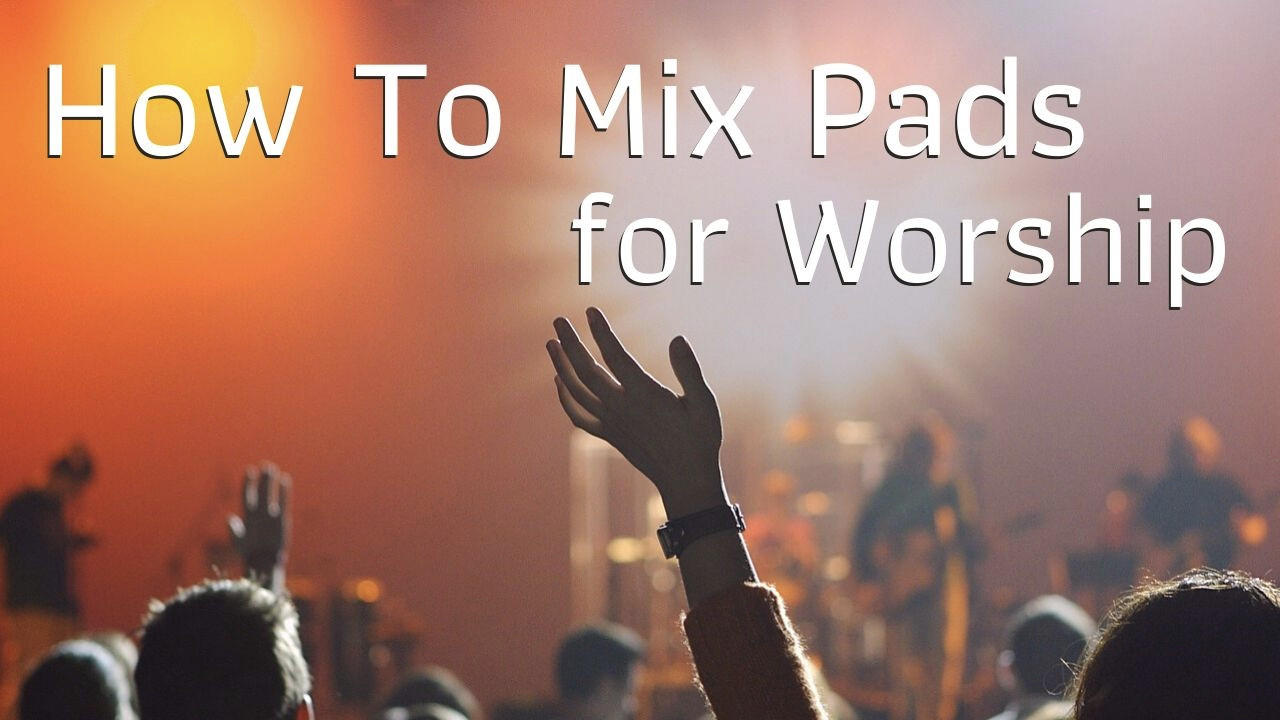
Adding an ambient pad to your worship team’s sound is becoming more and more common. Many worship leaders celebrate using pads because it’s an easy, turn-key way to add a depth of sound to your worship team’s instrumentation without adding a team member or learning complex new technology.
Pads create a “musical safety net” that affords worship leaders the freedom to focus less on the details and more on leading well. Pads are an amazingly effective, low-cost, easy-to-use resource.
Those who are inexperienced with pads, however, tend to have a common question:
“Won't a continual pad-drone clash with the worship team, especially when they change chords? And if it’s always playing, won’t the pad make everything sound muddy?”
Part of the an...
Drums, Sound and Worship
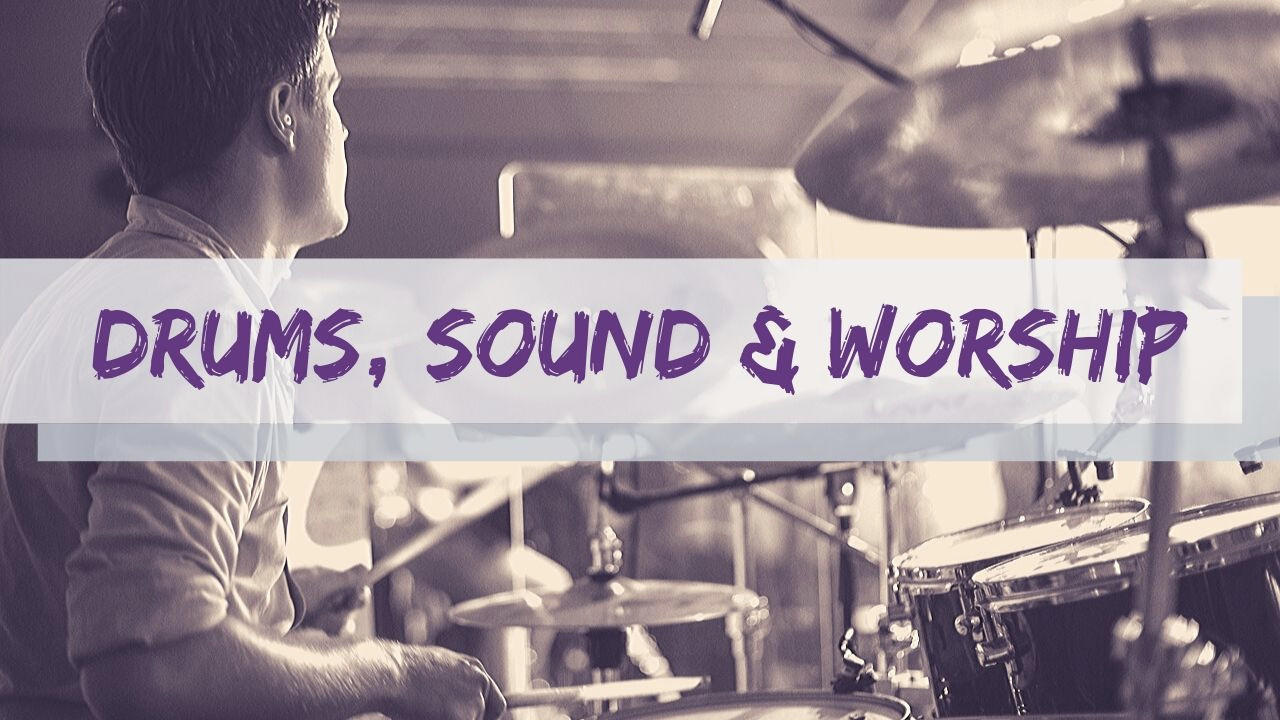
Despite years of experience playing in bands and performing a variety of music styles, I was caught off guard a little bit when I started playing drums for my local church worship team.
In case you have any uncertainty about it, there's a big difference between playing drums for a gig or concert and playing drums for worship (same goes for every other musician or vocalist on stage).
Playing an instrument or singing for worship is not a performance. I know that's easy to say, but a lot of "performers" on stage can struggle with adapting their style of playing with the needs of the worship leader and congregation. I did when I was a young and enthusiastic drummer!
What does any of this have to do with sound?
As a drummer and an audio engi...
Compressor Settings for Church Sound
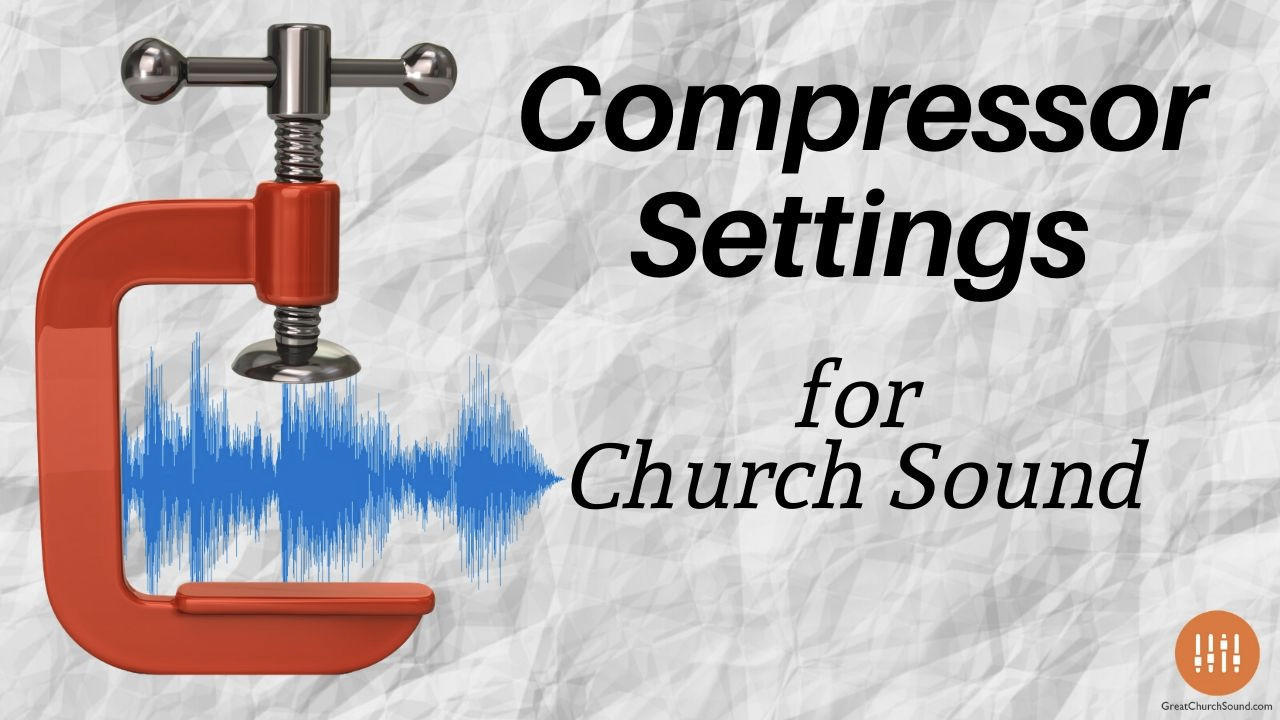
Compression is a great tool that can tighten up your mix and enhance the punch or power of certain instruments. But it can also cause some serious problems if you’re not careful.
An audio compressor is used to control the dynamic range of an audio signal, or the difference between the highest and lowest volume level.
Controlling the dynamic range can help you create a more stable sounding mix (especially when it comes to the pastor’s mic), and you’ll be able to dial in the sweet spot for certain instruments (like the kick drum).
But using the audio compressor on a digital console or a separate analog compressor can be intimidating – even if you've used one before!
It doesn't have to be super complicated. And it definitely helps to know ...
6 Steps to a Better Soundcheck
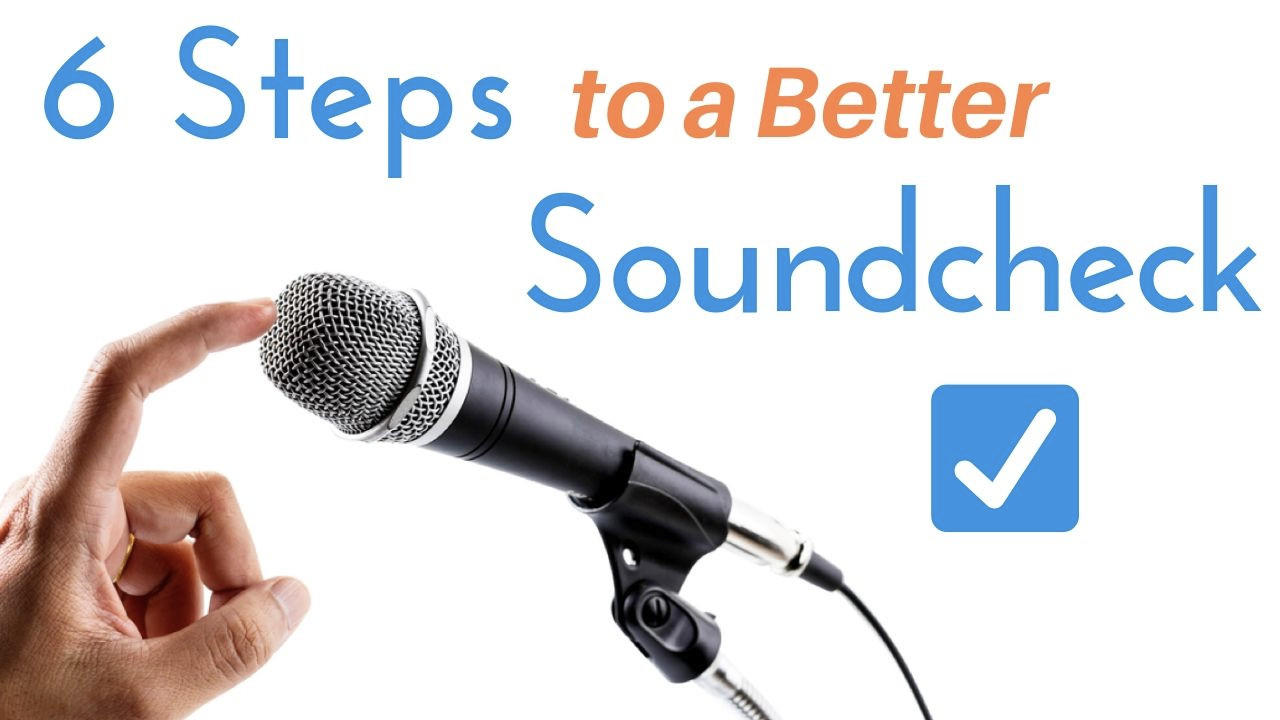
Never underestimate the value of a good soundcheck.
Doing a soundcheck with your sound system components before you go live seems simple enough, but it’s amazing how often this crucial step is rushed when preparing for “the main event”.
The key to successful live sound reinforcement mixing and system performance is a good soundcheck.
Even the most experienced professional audio engineers take their time to do a thorough soundcheck, even on systems they’ve used a thousand times. It’s that important.
There are different ways to approach a soundcheck, but the end result should always be quality sound from the stage to the main loudspeakers, a good monitor mix for each musician and vocalist, and a sound tech that is prepared to mix the live...





